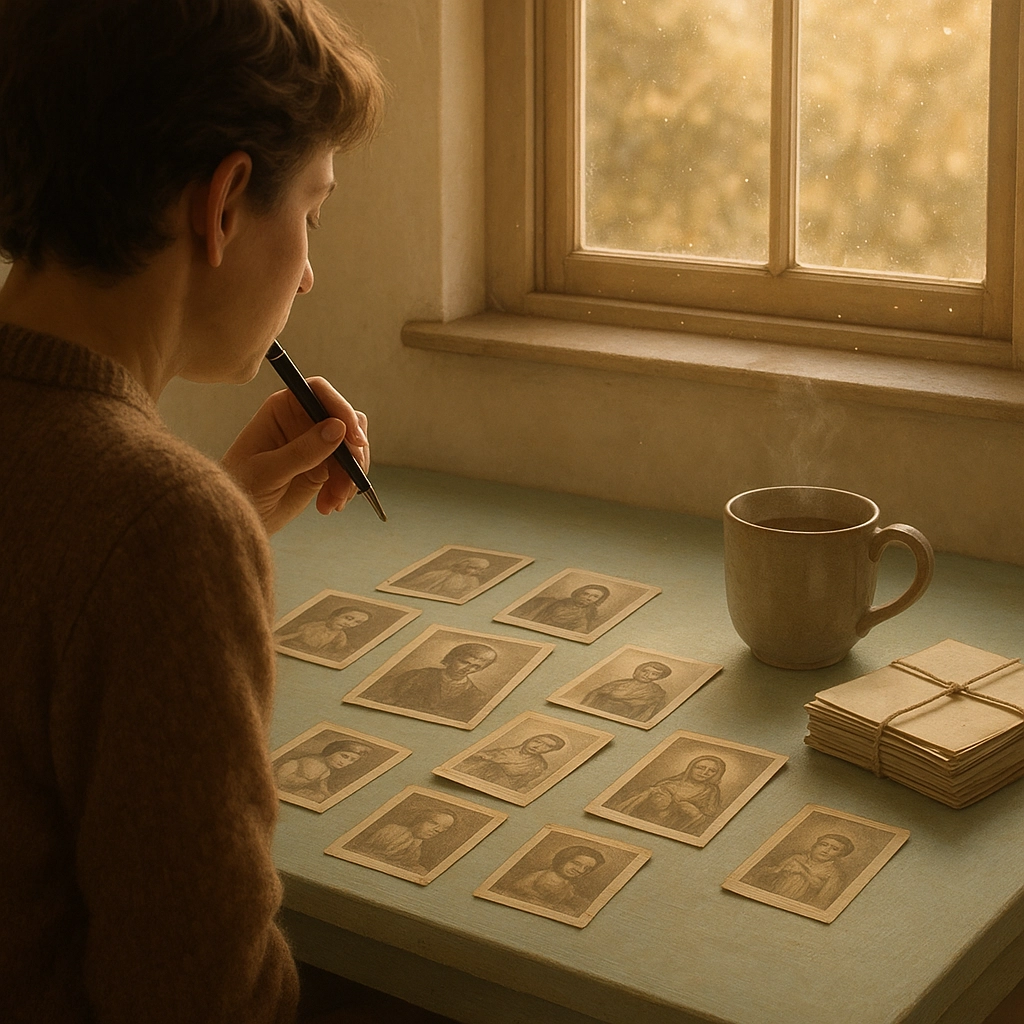Let’s be honest—most of us have a shoebox (or ten) stashed somewhere in our house, crammed with mystery photos. The ones we swear we’re going to organize when “life isn’t so crazy,” which is right up there with “when pigs fly” and “when laundry folds itself.” If you’re lucky, those pictures have names and dates on the back. If not, they might as well be ancient hieroglyphs. I mean, is that Aunt Mildred or a celebrity lookalike?
But what happens when those tattered photos are lost in a basement flood, or start to fade after one too many years in a sunny spot? Here’s the wild thing: our family’s most precious stories aren’t the ones we’re preserving in old albums, anyway. They’re the ones that live in our hearts—the ones shaped by faith, doubt, and the delightfully unfiltered way our kids pray at bedtime.
That’s where faith-based family memoirs swoop in like the superheroes they are—preserving faith, family, and all those gloriously imperfect moments so our legacies outlast even the sturdiest Polaroid.
The Sacred Gift of Remembering (Even When Your Memory… Isn’t Great)
I will confess: sometimes I forget what I came into the kitchen for, let alone the ways God showed up for me five, ten, or twenty years ago. (If you can retain both grocery lists and prayer requests, please teach me your ways.) But that’s exactly why God emphasizes remembering in the Bible.
In Deuteronomy, Moses basically tells the Israelites, “Don’t you dare forget what God’s done—make sure your kids and grandkids know the stories too!” (Deut. 4:9, super-casual paraphrase.) There’s a reason faith stories are meant to be passed down: we’re all forgetters at heart. But our written stories, unlike my memory of where I left my keys, can last for generations.
Every time we jot down a time God made a way, we’re building a spiritual time capsule for our families. We’re saying, “Remember, even when it looked impossible? God was faithful.” Cue the inspiration…and, let’s be real, probably a few happy tears.

Becoming a Living, Breathing (Sometimes Overcaffeinated) Testament
If you ever feel unqualified to write your faith story, join the club. (I’m the club president.) The truth is, we’re all walking, talking, coffee-drinking, sleep-deprived witnesses of God’s ongoing work, whether we’re nailing it or failing spectacularly.
It’s tempting to think our lives aren’t memoir material. But what if the most powerful story your family needs isn’t an epic miracle, but the moment you kept believing when hope felt wobbly? Or the hilariously awkward conversation where your toddler asked if Jesus eats pizza in heaven?
Real stories—honest and unscripted—are the ones our families remember. Your written faith memoir isn’t about impressing anyone with perfection. It’s about giving your people an authentic glimpse of God-in-the-mess, grace in the grit, hope in ordinary Tuesday mornings.
When Memories Get Foggy (or Hijacked by Siblings)
Ever played the “Remember When” game at family gatherings? You realize pretty quickly that everyone has a slightly (or wildly) different version of the same story. My sister claims she broke the vase; I know it was the cat. Or was it our little brother? (Cue the debate.)
Memories fade, details blur—and sometimes, the most powerful parts get lost in translation. Writing a faith-based family memoir locks those stories in. You’re not just recording WHAT happened, but HOW it felt—how God answered a desperate prayer, or used a tough season to change you from the inside out.
It’s not just about “the facts.” It’s about preserving the prayers, the midnight doubts, the triumphs and the holy laughter, so the real heart of your story doesn’t evaporate with time.

Faith-Based Memoirs: The Bridge Across Generations
Somewhere, right now, someone is wishing they’d asked their grandparents more about faith when they had the chance. (“Okay, but Nana, was God real to YOU when life was messy?”) The regret is real—because those stories are the original sources of our spiritual DNA.
Writing a family memoir of faith is the ultimate act of intergenerational love. You’re giving future generations a gift: evidence that they come from a line of ordinary, beautifully flawed people who trusted God through big wins and epic wipeouts.
And let’s not underestimate the comfort of reading your parent or grandparent’s account of fumbling their way through doubt and discovering unexpected joy. It’s a reminder that we all get to stumble forward together.
The Writer’s Secret: It’s Actually for YOU, Too
Confession: Sometimes we write out of obligation—“for the kids.” But as you revisit those moments and string them together, something miraculous happens. You spot God’s fingerprints where you missed them before. Writing isn’t just a gift for your family—it’s a grace note for your own soul.
Every retold story becomes a chance to see how the dots connect, how prayers got answered (in ways you might’ve overlooked in the chaos of the moment), and how grace has a way of sneaking up on us.

Creative Ways to Capture Your Faith Legacy (Because Not Everyone Wants to Write a Novel)
If the idea of a 300-page family memoir makes you want to hide under a weighted blanket, good news: there are as many ways to tell your story as there are flavors of church potluck casseroles.
- Short Letter Series: Jot down a handful of stories and stash them in a keepsake box, or email them out around the holidays.
- Audio or Video Testimonies: Record yourself sharing your faith moments on your phone, and voilà—digital legacy!
- Annotated Bibles or Journals: Margins full of scribbles, prayers, and sticky notes? Congrats, you’ve made a spiritual treasure map.
- Prescriptive Memoirs: Share a personal story, then tack on “lessons learned” or biblical truths for readers to chew on. (Who says only pastors get to preach?)
The key? Pick what feels doable. Your family would rather have a few authentic stories than none at all.
When Lost Photos Aren’t the End—They’re the Beginning
Sure, old photos are nice. But the stories we carry—the moments God met us, even when life gave us nothing but burnt toast and broken plans—are what make us who we are. They’re the invisible inheritance we hand down, long after our scrapbooks have lost their glue.
So, don’t panic if your cat knocked over your only wedding photo, or if old Polaroids have faded into ghostly blobs. Start with what’s in your heart. Write it down. Share it. Your family won’t just appreciate it—they’ll need it, someday.
And hey, if sitting down to write your memoir feels overwhelming, you’re not alone. At Call to Story, it’s our absolute joy to help. We believe in the power of your story—messy bits, holy laughter, and all. Ready to start? Let’s chat!
Because here’s the beautiful, sometimes hilarious, sometimes teary truth: When we preserve our faith stories, we create legacies so much stronger than lost photographs. We make sure our love, hope, and holy memories outlive us—and give our families the spiritual roots they’ll need, long after the last shoebox of photos is gone.

